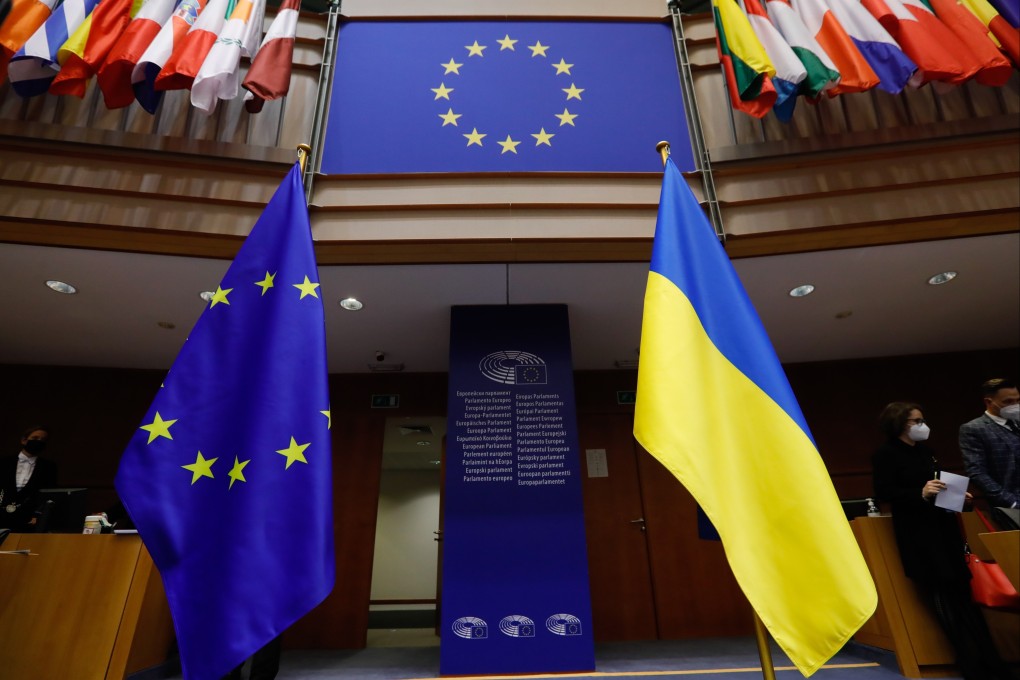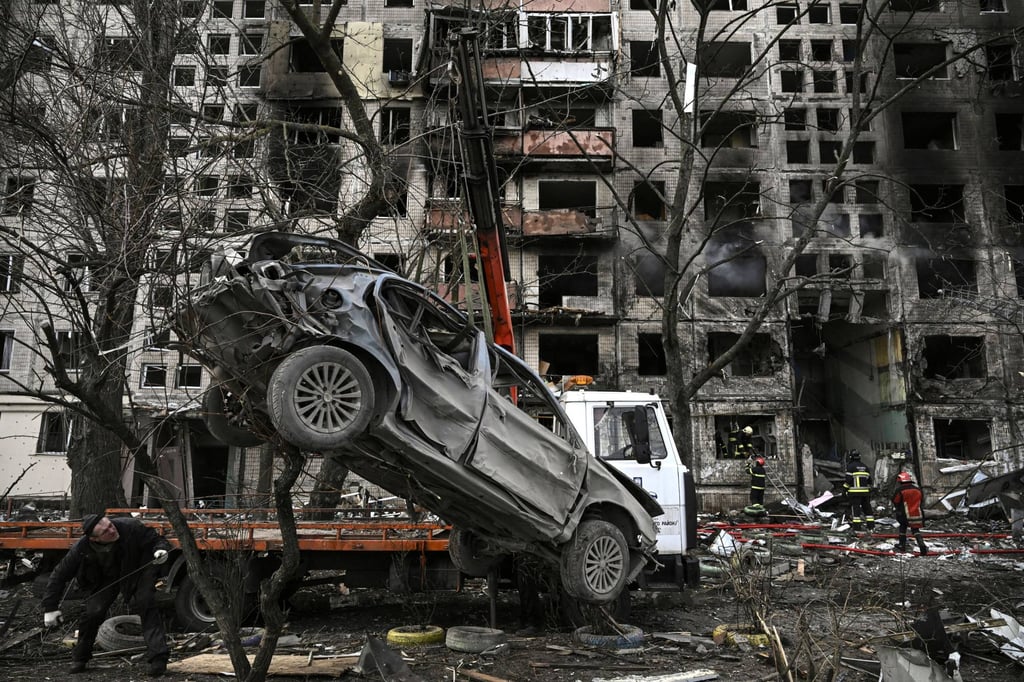Ukraine war: EU seeks China’s help to enforce sanctions as new measures hit Russian elites
- Brussels unveils new measures including an import ban on Russian steel and a ban on luxury goods exports to ‘directly hit’ Russia’s elites
- European Union spokesman Peter Stano says the bloc is lobbying China to align with the measures

Among the measures adopted by Brussels were an import ban on some Russian steel products worth €3.3 billion (US$3.6 billion) a year, and an export ban on European luxury goods including caviar, cigars, some wines, cigars, diamonds and cars designed to “directly hit” Russian elites.

There will be further bans on transactions with Russian state-owned enterprises and a ban on European agencies giving Russian clients or firms a credit rating.
A “far-reaching” new ban will restrict investment in the Russian energy sector.
Brussels also finalised plans to remove World Trade Organization (WTO) benefits from Russian goods and services, a plan announced in tandem with the G7 last Friday.
“Today’s agreement builds on the wide-ranging and unprecedented packages of measures the EU has been taking in response to Russia’s acts of aggression against Ukraine’s territorial integrity and mounting atrocities against Ukrainian civilians and cities,” an EU statement read.